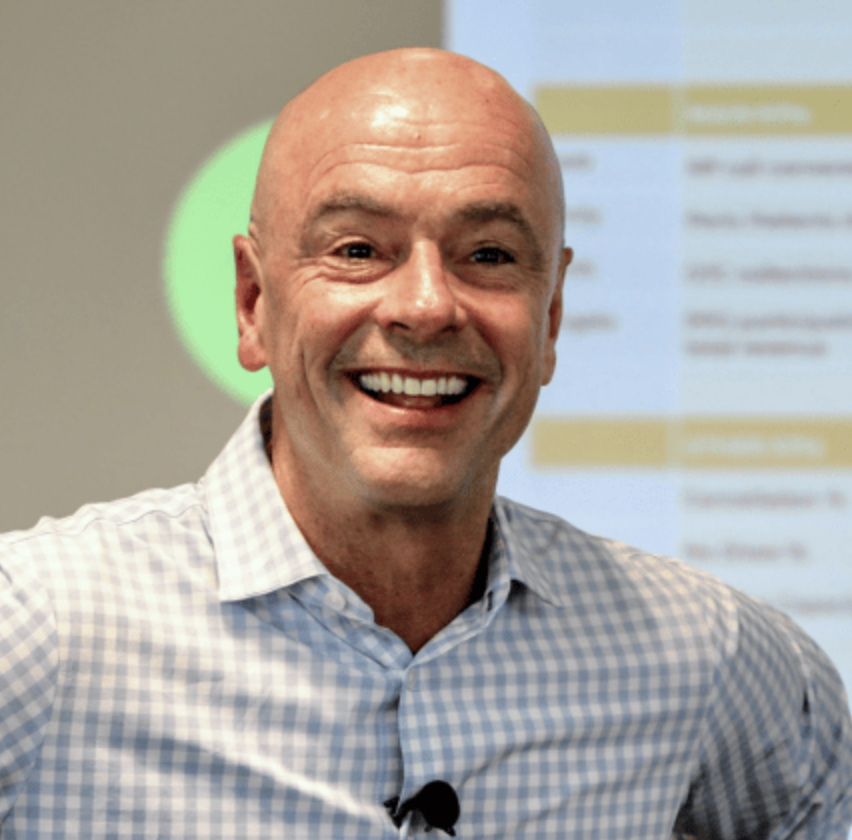Congratulations!
After many years of hard work, you graduated from dental school ready to treat patients and be the first line of defense in their overall physical health. For most in dentistry, this means heading out into the world to practice newly learned clinical skills as an associate in an established practice. A few recent graduates will try their hand at starting a new practice if the right opportunity presents itself. Regardless which direction you choose, the first 5-7 years of your career is a time for you to prove your mettle as a clinician and continue to hone your technical prowess.
But where do you go after that? What happens when you’ve improved your clinical efficiencies and prep times? Where do you turn when you begin to reimagine your role beyond the practicing dentist?
I don’t have all the answers for you and each doctor’s experience will be different, but I do know there are two critical transitions every dentist must make in order to progress in their career and build a fulfilling life.
The first transition for a dentist to make is that from clinician to owner. This is a big step but it’s probably the easier of the two transitions, because many before you wore this path well. It is the transition from just doing the work to also managing the work. Becoming an owner of a practice might look like buying out the practice where you are currently an associate, starting your own practice from scratch, or becoming partners in a practice with your old pal from dental school. No matter which path you choose, this is a huge decision and one that creates a lot of tangential responsibilities – Now you are the one making hiring (and firing) decisions, paying the bills and loans, getting supplies ordered, marketing your new practice, and oh yeah, still practicing your craft every day.
Here Are The Four Primary Challenges We Hear From Our Clients About Becoming A Manager In Their Practice:
- When The Business Side Of The Practice Is A Priority, The Clinical Treatments Start To Fail
- When The Clinical Side Of The Practice Is A Priority, The Business Goes On Auto-Pilot Or Runs On Low-Octane Fuel
- Between Finances, Staffing, Scheduling, And Production There Are Just Too Many Different Things To Juggle
- The Cycle Never Stops And It’s Difficult To Find The Time To Formulate A Strategy Or Goals To Get Ahead
Here at ACT Dental, we are extremely focused on helping our clients create systems that make their lives easier. For example, from the time you first speak to a new patient on the phone until when they are sitting in your operatory, the process should be pretty seamless. If you or someone on your team has to step in and intervene in that process on a regular basis, that’s going to create anxiety and take time away from a more important task. Automate as much as possible, make sure the rest is documented in detail, and then communicate expectations about who is responsible for each step of the process to your team members.
Once you have successfully transitioned to being an effective manager, it’s time to start working on the second transition – becoming a leader. Being a good leader requires a lot of hard work, constant reevaluation of yourself, and an openness to external guidance. While being a good leader is innate for some, I believe if you truly want to develop into an effective leader you can learn the skills and strategies required. I want to hammer this point home, being a good manager does not make you a good leader. In fact, I’ve worked for several managers who will never be good leaders because they either weren’t interested or didn’t want to put in the effort to change what needed changing. Don’t get me wrong, there is nothing wrong with just being a manger. Every organization and certainly every dental practice needs a person who can skillfully manage others and ensure everything runs smoothly. But if you want more from your dental career than that, keep reading.
A good portion of our clients bring us into their practice between the first and second transition. Many of them realize that running a practice shouldn’t be so difficult, but they aren’t sure what’s missing. We spend a significant amount of time teaching foundational leadership principles that are essential to organizational health. To be honest, I’ve met a lot of doctors who are excellent on the clinical side and have figured out ways to cope with their managerial responsibilities in their practice, but continuously micromanage their staff and are on the verge of burnout by their late forties.
It Doesn’t Have To Be This Way. There Is Another Alternative.
I think we can all agree that micromanagement does not create a healthy work environment. Sure, that’s a good start, but what are other traits of a good leader? Based on the habits of the most successful leaders I know, you should continuously strive to do these five things:
-
Listen. Big Ears, Small Mouth. It May Sound Elementary, But When Was The Last Time You Actively Listened To A Team Member’s Complete Thought Before Formulating Your Own?
-
Learn To Build An Organization Around You With The Right Kinds Of People And Then Invest In Their Success. The Right People Are Usually Not The Ones That Agree With Every One Of Your Ideas.
-
Grant Autonomy, Guide With Vision, Give Clear Direction.
-
Choose To Accept Guidance & Support.
-
Continuously Work To Improve Your Leadership Skills And Style, It’s A Lifetime Process.
As I mentioned previously, the transition to being a successful leader is not for the faint of heart. But trust me, the juice is worth the squeeze. Becoming a leader means you will attract the kind of talent that will make you want to jump out of bed and go to work every day. It means you will put the right people in place to counteract your weaknesses and decrease opportunities for failure. It means you can stop worrying about the minutia and focus on growing your practice and your clinical skills at the same time. But most of all, it means you will be well on your way to building a better practice and a better life.
Kirk Behrendt
Kirk Behrendt is a renowned consultant and speaker in the dental industry, known for his expertise in helping dentists create better practices and better lives. With over 30 years of experience in the field, Kirk has dedicated his professional life to optimizing the best systems and practices in dentistry. Kirk has been a featured speaker at every major dental meeting in the United States. His company, ACT Dental, has consistently been ranked as one of the top dental consultants in Dentistry Today's annual rankings for the past 10 years. In addition, ACT Dental was named one of the fastest-growing companies in the United States by Inc Magazine, appearing on their Inc 5000 list. Kirk's motivational skills are widely recognized in the dental industry. Dr. Peter Dawson of The Dawson Academy has referred to Kirk as "THE best motivator I have ever heard." Kirk has also assembled a trusted team of advisor experts who work with dentists to customize individual solutions that meet their unique needs. When he's not motivating dentists and their teams, Kirk enjoys coaching his children's sports teams and spending time with his amazing wife, Sarah, and their four children, Kinzie, Lily, Zoe, and Bo.
RECENT POSTS
Stop Guessing How To Appreciate Your Dental Team
November 03, 2025
7 Habits to Stop Today for a Healthy Culture
October 31, 2025
963: 4 Ways to Reinvent the Hygiene Op – Carlie Einarson
October 31, 2025
The NO Button Cure For Dental Burnout
October 27, 2025
Data Snapshot: Production Per Day
October 24, 2025

